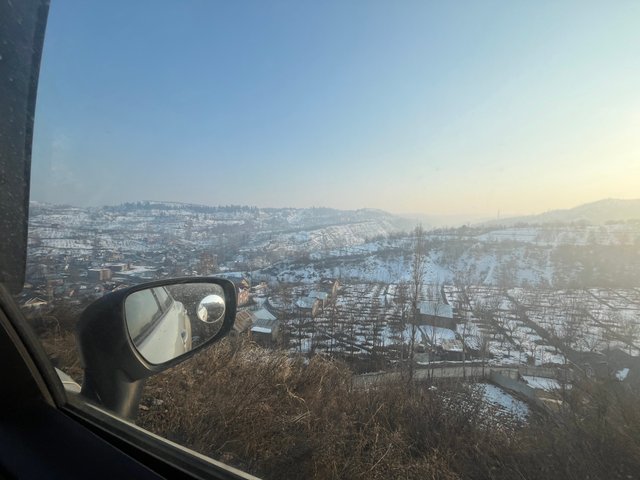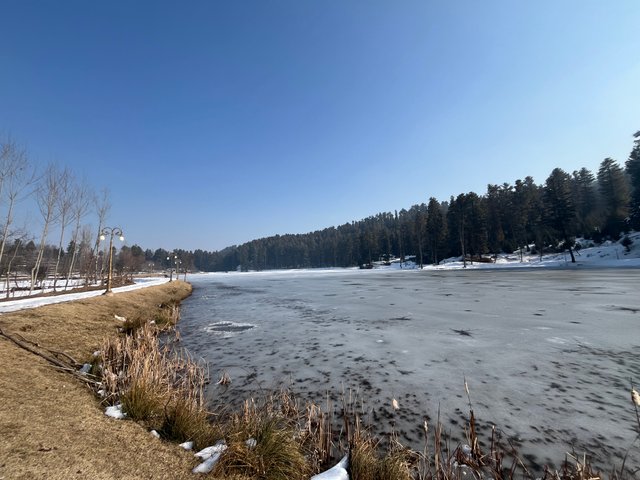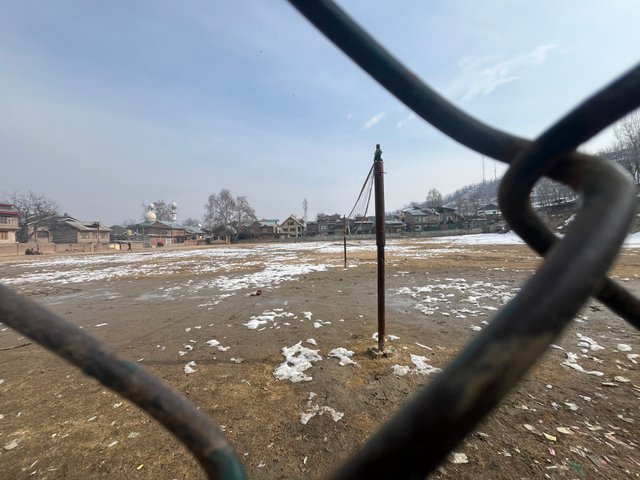Hello dear friends, I hope you’re all doing well. Today, I want to share with you the challenges of enduring a year marked by scorching summers and now bitterly cold winters. This extreme shift is a direct result of climate change—a crisis that we, as humans, are responsible for. Our actions have significantly impacted the environment, bringing about drastic and alarming changes that we can no longer ignore.
The valley I live in used to experience ample rainfall during the summers and significant snowfall in the winters. The summer heat rarely exceeded 34 to 35°C, and the climate remained consistently pleasant. In my childhood, I vividly remember enjoying every season to its fullest because everything seemed so harmonious.
A generous amount of rainfall was ideal for the growth of agricultural and horticultural products, while the winter snowfall rejuvenated the glaciers, ensuring a steady supply of water throughout the year. Back then, we hardly faced any drinking water issues during summers, as the perennial streams flowed uninterrupted, providing crystal-clear water in abundance.
However, over the years, the changing climate has disrupted this balance, impacting agriculture, water resources, and the serene environment that once defined the valley. It reminds us of the urgent need to cherish and protect nature before it’s too late.

It was all due to minimal human interference in nature that the valley, renowned for its natural beauty, remained a serene haven. It offered an unparalleled experience, free from major disturbances like factories or other agents of environmental harm. However, in recent years, the industrialization of the valley has drastically altered this idyllic scenario.
As we move toward a more industrialized way of life, we are witnessing the adverse consequences of this shift. The once-abundant rainfall during summers has become scarce, and the glorious 5-foot snowfalls of winter have dwindled to just a few inches. Winters no longer feel like winters but rather a season of cold devoid of significant precipitation.
I fondly recall playing in the snow, crafting massive snow galleries, and enjoying the long-lasting beauty of a white winter wonderland. But now, such snowfall feels like a distant dream. When it does snow, it’s minimal, melting away within days and leaving behind little impact on the landscape or the people. This stark contrast to the past serves as a poignant reminder of the cost of unchecked industrialization and the need to restore balance with nature before it’s too late.


The scarce rainfall during the summer has had a severe impact on agriculture and horticulture in the valley. With much of the region not being suitable for artificial irrigation, farmers face immense hardships when the rains fail. All their hard work often goes in vain, and while there’s always hope at the start of the year for good rainfall, the year-end brings disheartening scenes of disappointed farmers. It’s heartbreaking to see their efforts yield so little, year after year.
While everyone talks about climate change, few take tangible steps to address it. Capitalists continue to reap profits, prioritizing their gains over the environment and its far-reaching impact on the larger population. Agriculture, being one of the primary economic sectors of the valley, provides employment to the majority. Yet it is disproportionately affected by climate change, exacerbating the struggles of farmers. Unfortunately, those more concerned with personal gains show little regard for nature or the wellbeing of society as a whole.
This year, due to the persistent dry spell, apple production has plummeted dramatically. To provide a real example, an orchard that would typically produce over 200 boxes of apples yielded a mere 20 boxes this year. The prolonged dry conditions not only reduced the yield but also affected the quality, with the apples turning tasteless. This added yet another layer of misery to the farmers’ plight, showcasing how climate change directly threatens livelihoods and food security in the valley.

No doubt, production and earning profits are important for capitalists, but they must also take responsibility for addressing the climate change that results from their activities. It’s not just for their benefit but for the collective good, as even the small actions of common people contribute to climate change. Everyone has a role to play in safeguarding the environment.
We must prioritize protecting our climate and nature above all else, for sustainability is only possible when we live in harmony with the environment. Being harsh on our surroundings will inevitably lead to our own downfall. If nature suffers, humanity will perish alongside it.
Therefore, we must be mindful of our actions and take steps, no matter how small, to help nature heal. Simple acts like reducing waste, conserving resources, and planting trees can make a difference. By nurturing the environment, we ensure a healthier, more balanced world for ourselves and future generations.
Thank you for going through my post. Have a great time ahead.